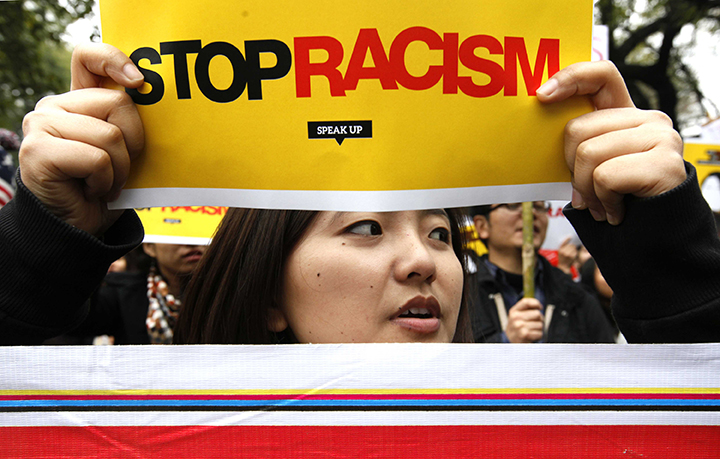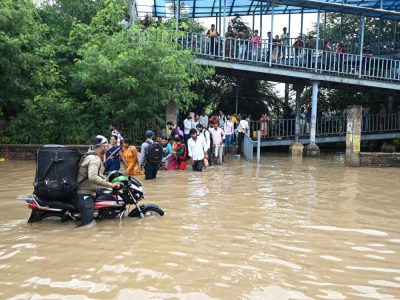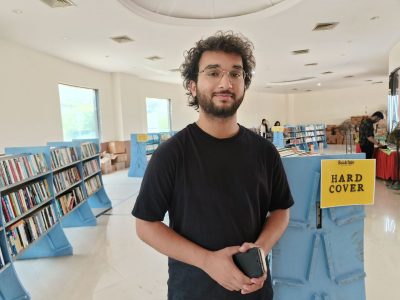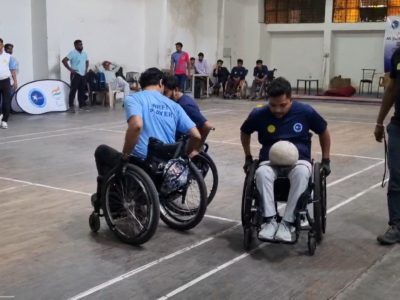Discrimination against the North-eastern community might worsen once the lockdown is over, as people who don’t know their geography think they come from the land of the Wuhan virus
With people locked indoors, there were fewer opportunities for racial discrimination against persons from the North-east in Delhi over the last two months. But when people of the community do step out for essentials, they are reminded yet again of prejudices against them.
Phibir Chakma, general secretary of Delhi Chakma Students Union, has been living in the Capital city for the past 16 years. He takes us back to when he was six years old. “Some boys in my neighbourhood use to call me Nepali, chinki(a derogatory term). I was a child; I just couldn’t make myself forget it”.
Since then, there have been other racial slurs passed, but nothing resonates like these childhood incidents. In adult life, being the target of such behaviour has become so commonplace that his memory lets it slide from thought.
But with the pandemic Covid-19 or coronavirus having originated in China – to a place many a geography-challenged Indians thinks North-easterners originate from – bigotry has found a new rationale. “Covid-19 had entered our country but the lockdown had not been imposed yet. I was in Rajghat with a friend, just walking around, when teenagers, around 15 of them, started calling us momos and then Coronavirus. I got angry and argued with them but I couldn’t do anything. They were teenagers and there were 15 of them.”
He chose not to call the helpline number 1093 of the Delhi police specifically meant for people of North-east in distress. “No one wants to lodge a complaint through calls. We share our problems amongst each other. Even though I know about it (the number) I’ve not tried even a single time. When I was called Coronavirus, I felt that if I lodged a complaint the young boys would probably have their future destroyed.”
In other circumstances, why does he choose not to retaliate? His response again has to do with who the perpetrators are. “Like in my colony, the youth are familiar with us and are okay, but it’s the elderly uncles always looking at us strangely. They don’t think we belong here; they are not good persons. But if I call the police on them it won’t be nice, not for them nor their family.”
Patriot asked DCP SK Singh of PCR Communications about the number of calls being received on the helpline number, with many reported incidents of racial discrimination. “Where is it (happening)?” he asked, “We aren’t getting any calls. There may have been a few but as you see in society whether the person is from the North-east or anywhere, if some hatred comes it’s directed at anyone. But I don’t think it’s there (discrimination) now.”
He later admitted that while earlier many calls were coming in, numbers had reduced since the lockdown. “We aren’t getting such calls now, it’s much fewer. The children from North-east who live here (in Delhi) would call because they would be outside and someone would say something or the other to them. But now because of lockdown it’s not there.”
He added that the reason behind calls going down could not be pinpointed, “(It) will have many factors, (but) with no social mingling fights will come down.”
Bune Lemai, general secretary of the Poumai Naga Tsiidoumais Me Delhi (a Manipuri students association), currently studying for a Master’s degree from Miranda House, says incidents cannot disappear. What is happening instead, Lemai says, is that the pandemic is being used as an opportunity to openly discriminate.
Calling it a “normalisation” of racial attack which is happening from both sides, explaining what she means, she says: “For some of us sadly, when we get called names, we think forget it”, and it goes on.
“Before the lockdown, a friend of mine studying at Ambedkar University had to go for a lecture. Nobody wanted to allow her to sit in the shared rickshaw. When she sat in one, a person refused to get in saying, ‘How can we sit here when coronavirus is sitting inside?’”
J Maivio, special invitee member of the Monitoring Committee, Ministry of Home Affairs (MHA), and former member of Bezbaruah Committee, said the increase in incidents of racial discriminations had seen a substantial rise when the virus first started making news in the country. “We received many complaints at that time, almost every hour we received a complaint saying they had been called Corona, now it’s less as people aren’t stepping out. Most people are avoiding going out to places in fear of racial discrimination and attacks and we too advise them against stepping out.”
Now he says many North-easterners are returning home, including students. “More than 20,000 people from Manipur have applied to go home just from Delhi. Till now two trains have gone to Manipur with nearly 3,500 people and another train to Nagaland, and to Tripura.”
Naga Student Union Delhi president Hinoto P Aomi points out that the majority who would be returning home are migrant workers. “When it comes to racial discrimination no one is spared, not even the students. Those facing rental issues are mostly migrants who have come to Delhi to earn their bread and butter and to look after their family back at home. Due to the lockdown, they are not going to work and are not being paid so can’t give the rent nor get their daily necessities”
In his estimate, about 15% students are facing problems with their rented accommodation “as neighbours are instigating the landlords to chase them away, calling them Chinese”.
An incident in Pune left them shocked. A landlord demanded sexual favours from his North-east tenants in exchange for rent exemption. “The police were informed, who took up the issue and dealt with it.”
In Delhi, he says, discrimination has always been there and is hard to remove. “There’s no concrete solution,” he says. For now, their focus is to feed those who have no provisions and help people return home. “Many people keep calling to say when will government arrange trains, we want to go home. Earlier we were keeping a record but since we are being bombarded with calls on the same issue, we are unable to maintain a record.”
They have been doing what they can, he says. “We are trying to help through NGOs and State Bhawans but cannot deny the fact that we are unable to help everyone as there is a huge population of North-east people in Delhi.”
Aomi says they also approached the Delhi government for help and while they are doing their best, providing daily necessities especially to migrant workers, what is lacking is relief camps. “When it comes to North-east people, the situation is very unique. Although there are relief camps, they cannot go and live there as we cannot take the risk of asking them to take shelter where racial discrimination will surely happen. If any untoward incident happens, we will not be able to prevent it”.
He also points to trains going to the North-east being attacked in Uttar Pradesh and Bihar. There have been reports of at least two trains bound for the region from Gurugram being attacked in the past week when passing through Bihar.
“They are throwing stones, and threatening passengers, these are also issues. The respective state government must provide security and safe passage.”
While bigotry remains largely indoors for now, Delhi Police needs to do some forward planning for what happens when the lockdown is removed and people continue to think people from the North-east are no different from the Chinese.





